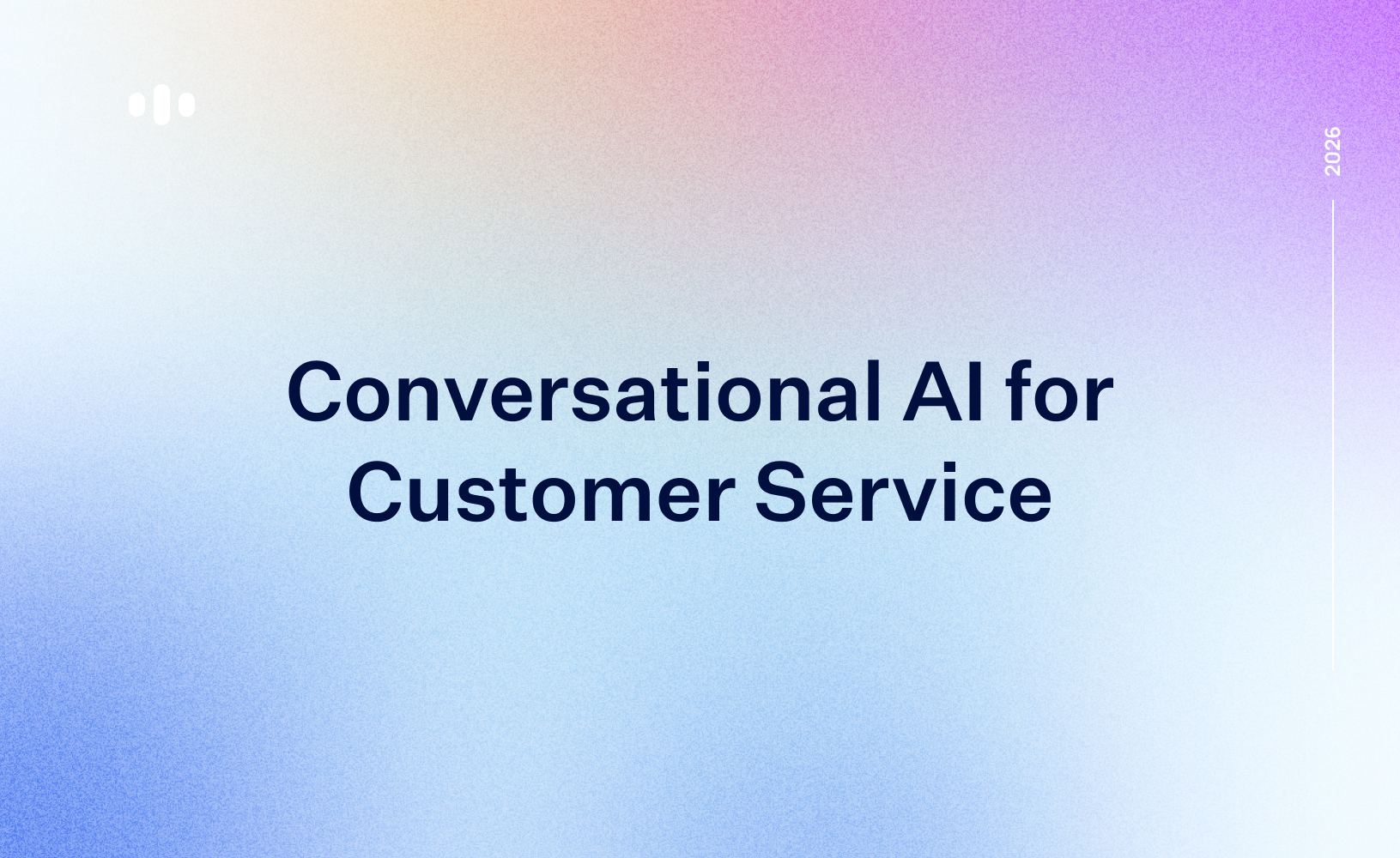AI phone agents are transforming loan pre-qualifications, reducing approval times by up to 40% and cutting errors by 30%. These intelligent systems verify applicant details, assess eligibility, and capture critical information—tasks that once required hours of manual work. By automating the loan application process, lenders can reduce costs, improve compliance, and deliver faster decisions.
For borrowers, this means instant responses and fewer delays, creating a smoother and more reliable experience. In competitive lending markets, speed and accuracy give lenders a significant edge while boosting customer satisfaction.
Understanding the Loan Application Process
The loan application process traditionally involves multiple steps, including document collection, verification, risk assessment, and final approval. Each stage can be time-consuming and prone to errors due to manual handling.
According to industry statistics, the average time for loan approval can range from several days to weeks, with manual processes accounting for a significant portion of this delay.
Key Stages of the Loan Application Process
Before initiating a loan application, borrowers must identify the type of loan that best suits their needs—whether it is a personal loan, mortgage, or business loan. This stage involves understanding the specific requirements for each type of loan, including interest rates, repayment terms, and eligibility criteria. Gathering necessary documentation such as proof of income, tax returns, and identification is crucial at this stage.
- Application Submission: The next step involves submitting a formal loan application to the chosen lender. This can typically be done online or in person at a bank branch. The application form requires detailed personal information, financial statements, and the purpose of the loan. The completeness and accuracy of this submission are vital as they set the foundation for the subsequent steps.
- Document Verification: Once the application is submitted, lenders initiate a thorough verification process. This includes scrutinizing various documents provided by the borrower—such as income statements, bank statements, tax returns, and identification proofs—to ensure their authenticity and accuracy. Lenders use advanced technology like Optical Character Recognition (OCR) to extract data from documents accurately, which minimizes human error significantly.
- Credit Evaluation: After verifying documents, lenders conduct a credit evaluation to assess the borrower’s creditworthiness. This involves checking credit scores, analyzing payment history, outstanding debts, and existing loans. A strong credit profile can enhance the likelihood of approval while poor credit history may lead to rejection or unfavorable terms.
- Risk Assessment: In this stage, lenders perform a comprehensive risk assessment based on the borrower’s financial profile and credit evaluation results. Factors considered include income stability, employment history, debt-to-income ratio, and overall economic conditions. This assessment helps lenders determine whether granting a loan poses any significant risk.
- Loan Underwriting: Loan underwriting is a critical step where underwriters review all relevant information before making a final decision on the application. They evaluate the borrower’s financial situation alongside loan specifics such as amount requested, interest rates, repayment terms, and any collateral offered. This stage can be complex so, it may take longer for applications involving multiple parties or intricate financial situations.
- Loan Approval: If the application passes underwriting successfully, it moves to the approval stage where lenders finalize the terms of the loan offer. This includes specifying the loan amount and interest rate based on assessed risk levels. Borrowers are then notified of their approval status along with any conditions that must be met prior to disbursement.
- Loan Disbursement: Upon acceptance of the loan offer by the borrower, funds are disbursed according to agreed-upon terms—either as a lump sum or in installments depending on the type of loan. This step marks the transition from application to actual funding.
- Loan Servicing: After disbursement, ongoing management of the loan begins. This includes monitoring repayments and addressing any borrower inquiries or concerns throughout the life of the loan.
- Closure and Final Settlement: Once all repayments are made according to schedule, the loan is considered closed. Borrowers receive documentation confirming closure from their lender.
The Role of AI Phone Agents
AI phone agents are transforming the loan application process by acting as virtual assistants that guide applicants through various stages, ensuring a seamless experience. Their capabilities extend beyond basic query handling; they are equipped to manage complex interactions that enhance the overall efficiency of loan processing.
Handling Long Calls
AI phone agents are designed to manage lengthy conversations without fatigue. They can engage with applicants for extended periods, ensuring that all necessary information is collected comprehensively.
This capability is particularly beneficial in scenarios where applicants might have multiple questions or require detailed explanations about loan terms, eligibility criteria, or documentation requirements. For instance, an AI agent can patiently walk a borrower through each step of the application, addressing concerns and clarifying doubts without the limitations faced by human agents.
Double Confirming Information
Accuracy is critical in the loan application process. AI phone agents excel at double-confirming information provided by applicants. After collecting initial details, they can repeat key information back to the applicant to verify its correctness.
This step not only reduces errors but also builds trust with borrowers by demonstrating diligence in handling their applications. For example, if an applicant mentions their income or employment status, the AI agent can reiterate this information and ask for confirmation before proceeding to the next steps.
Asking Follow-Up Questions
In cases where responses from applicants are vague or incomplete, AI phone agents can intelligently ask follow-up questions to gather additional details. This adaptive questioning allows them to clarify ambiguities and ensure that all necessary information is captured accurately.
For instance, if an applicant provides an ambiguous answer regarding their credit history, the AI agent can probe further by asking specific questions about past loans or payment behaviors. This proactive approach minimizes back-and-forth communication and expedites the application process.
Risk Assessment
AI phone agents analyze applicant data against vast datasets to evaluate creditworthiness. They assess various factors including credit scores, income levels, and repayment histories using advanced algorithms that can predict repayment likelihood with high precision.
Benefits of Integrating AI in Loan Processing
The integration of AI phone agents into the loan application process offers numerous advantages:
- Speed: Automated systems can process applications in real-time, significantly reducing waiting periods for customers.
- Accuracy: By minimizing human involvement in data entry and analysis, AI reduces the risk of errors that can lead to costly mistakes.
- Scalability: Financial institutions can manage increased application volumes without proportionately increasing staff or resources.
- Enhanced Customer Experience: With 24/7 availability, AI agents provide consistent support and guidance throughout the application process, improving overall customer satisfaction.
Creating Effective AI Agent Prompts for Loan Applications
Creating effective prompts for your AI phone agent is essential in streamlining the loan application process. By ensuring that the AI engages potential borrowers effectively and gathers necessary information, you can enhance the overall experience. Here are unique strategies to create impactful prompts tailored for loan applications:
1. Initiate with Purpose and Clarity
Start the conversation with a clear introduction that establishes the purpose of the call and builds rapport. For example:
Prompt: “Hello [Client's First Name], this is [Your Name] from [Your Company]. I’m here to assist you with your loan application. Can we take a moment to go over your needs?”
This approach informs the client about who you are and why you’re calling, setting a professional tone.
2. Inquire About Loan Specifics
Ask direct questions about the type of loan the client is interested in, which helps in tailoring the conversation to their needs.
Prompt: “What type of loan are you considering today? Is it for personal use, home improvement, or perhaps a business venture?”
This question not only clarifies their intent but also allows for a more focused discussion on relevant options.
3. Discuss Credit History
Understanding the client's credit history is vital for determining loan eligibility and terms.
Prompt: "We need to check your credit score to assess eligibility and offer competitive rates. Could you please provide your credit details?"
This direct approach requests the required information while clearly explaining its purpose.
4. Encourage Commitment to Next Steps
As the conversation progresses, encourage clients to take actionable steps toward completing their application.
Prompt: “I believe we have some excellent loan options that align with your needs. Would you like to schedule a time to finalize your application or receive more information via email?”
This prompt guides clients toward taking action while providing them with options that suit their preferences.
5. Conclude with Assurance and Follow-Up
End the call positively by reassuring clients of your support and outlining what they can expect next.
Prompt: “Thank you for your time today, [Client's First Name]. I look forward to helping you through this process! I’ll follow up shortly with the details we discussed.”
This closing statement reinforces your commitment to assisting them and leaves a positive impression.
By implementing these strategies, AI phone agents can significantly enhance the efficiency of loan applications, providing borrowers with timely assistance and a seamless experience throughout the process.
Streamline Loan Processing with Retell AI
Navigating the loan application process can be a significant challenge for financial institutions. Retell AI offers advanced AI-driven solutions designed to help lenders streamline their operations, improve accuracy, and maintain compliance with essential regulations. By leveraging these technologies, financial institutions can effectively address the complexities of modern lending while enhancing the overall customer experience.
If you’re interested in making your loan processing more efficient and adapting to the changing landscape, it might be worth checking out what Retell AI has to offer. Our solutions focus on optimizing operations and reducing approval times, all while keeping compliance and customer satisfaction at the forefront.
Contact Retell AI today to discover how integrating AI can enhance your loan processing and elevate your customer experience!
See how much your business could save by switching to AI-powered voice agents.
Your submission has been sent to your email
ROI Result
Total Human Agent Cost
AI Agent Cost
Estimated Savings
A Demo Phone Number From Retell Clinic Office
.avif)





